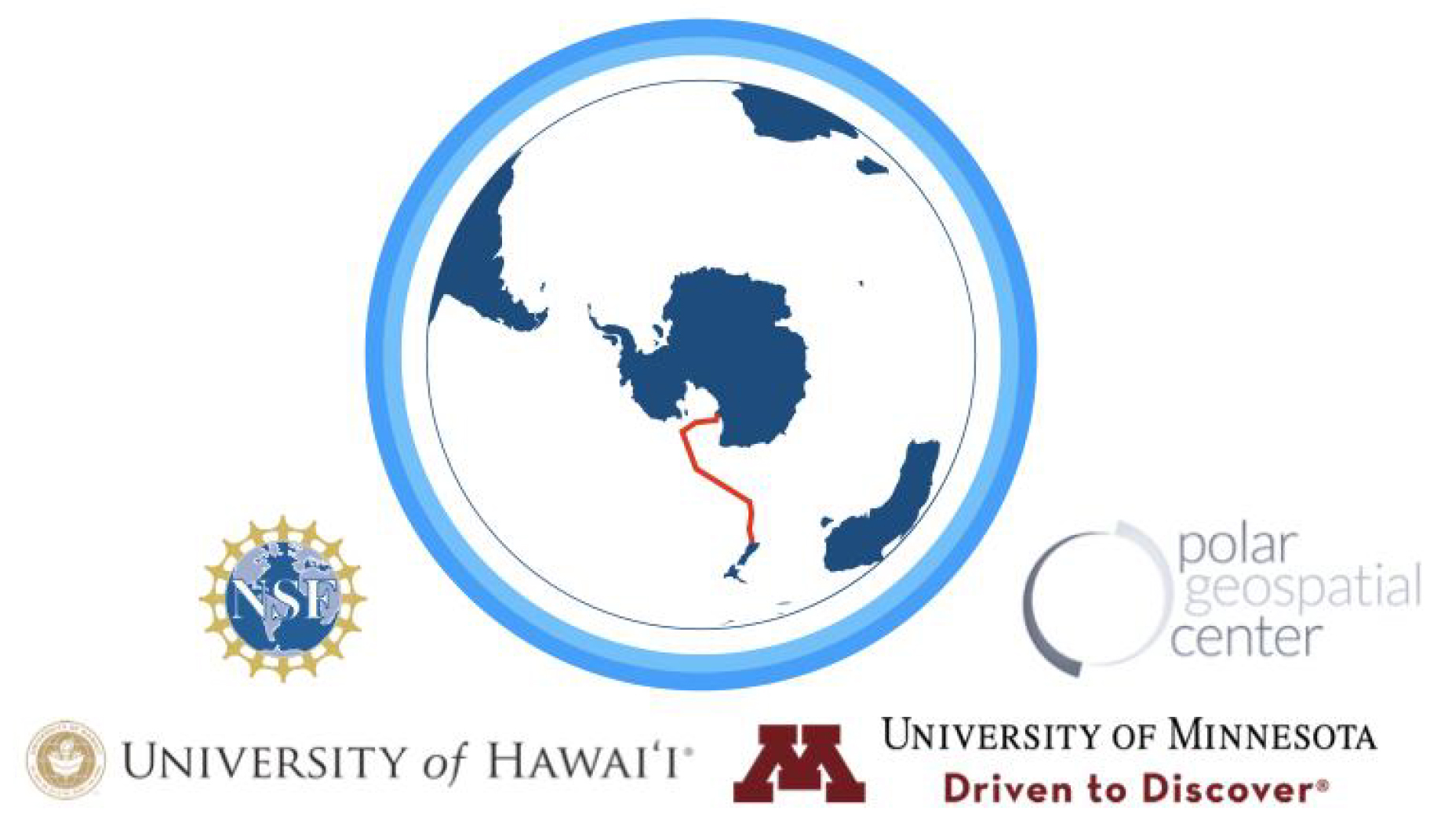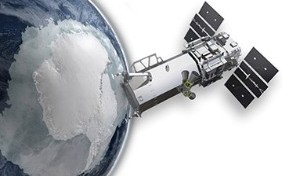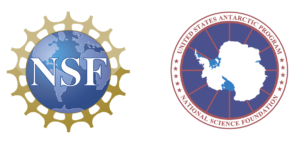
Missed out on the newsletter via email? Sign up here!
2021 NSF Antarctic Subsea Cable Workshop:
High-Speed Connectivity Needs to Advance US Antarctic Science

JUNE 29 – JULY 1, 2021 VIRTUAL ZOOM WORKSHOP, 1-5 PM US CDT (6-10 PM UTC)
ATTENDANCE CAPPED AT ~50 ACTIVE PARTICIPANTS
YOUTUBE LIVE STREAM WITH CHAT OPEN TO ALL (DAYS 1 AND 3), ARCHIVED FOR ASYNCHRONOUS VIEWING
More information will be posted to the workshop website as it is available.
This National Science Foundation (NSF) funded workshop will produce a report outlining the science advances and other impacts that would be enabled by massive improvements in digital connectivity to Antarctica. Given recent synergistic opportunities, NSF is interested in a visioning exercise to understand the transformational potential of a submarine fiber optic telecommunications cable between New Zealand and McMurdo Station in the type, kind and conduct of research supported by the United States Antarctic Program. Terabit-scale networking capability could eliminate current bandwidth constraints faced by researchers, educators and support functions while also reducing the latency of current satellite-based communication. The cable infrastructure can itself also serve as a scientific platform (a “SMART” cable) with capability to monitor ocean conditions and seismic activity. Direct fiber connectivity to McMurdo may also enable improved connectivity to Amundsen-Scott South Pole Station and science infrastructure there.
The three day workshop will include a day of short presentations spanning the breadth of Antarctic science supported by NSF, existing need and opportunities for improved networking capabilities, and how science and operations in Antarctica would benefit from dramatically increased connectivity.
Day 1: Scene Setting, Lightning Talks
Day 2: Workshop Breakout Sessions
Day 3: Summary and Plan for Drafting Report
If you are interested in participating in the workshop, we would appreciate your initial response to this survey to help gauge interest and determine how a new, instrumented fiber optic cable to Antarctica would advance science. We welcome participation from US and international research scientists, US Antarctic support providers, education and outreach experts, and submarine cable and digital networking experts.
Support for this workshop is provided by the National Science Foundation (Award 2130663). Questions and correspondence should be directed to project PI Peter Neff, pneff@umn.edu.
Thank you for your interest, and if you have suggestions for additional members of the research, education, digital networking and science support community who could contribute we would appreciate your help in providing us their contact information at the end of the survey.
Initial Organizing Committee Members
Peter Neff, Assistant Research Professor, University of Minnesota
Gwen Jacobs, Director of Cyberinfrastructure, University of Hawaii
David Lassner, President, University of Hawaii
Jonathan Pundsack, Managing Director, Polar Geospatial Center, University of Minnesota
Heidi Roop, Assistant Professor, University of Minnesota
Garret Yoshimi, Vice President for IT and Chief Information Officer, University of Hawaii
Bruce Howe, Chair, Joint Task Force (JTF), ITU/WMO/IOC SMART Cables for Observing the Ocean
Antarctic Tasking Requests
Due July 23, 2021

PGC is working with the National Geospatial-Intelligence Agency (NGA) to coordinate collections of high-resolution commercial satellite imagery from DigitalGlobe for the upcoming 2021-22 Antarctic field season.
Please get in touch with your PGC Point of Contact if you have federal funding and are conducting Antarctic research or providing Antarctic logistics support and would like to submit tasking requests for your area(s) of interest. The deadline for requests for the upcoming Antarctic field season is July 23rd, 2021.
If you submitted a request for a previous year and would like to have imagery collected for a future season contact your POC for resubmission.
PGC Antarctic On-Ice Support 2021-2022 Update
 The National Science Foundation (NSF) Office of Polar Programs will again significantly restrict research opportunities to the U.S. Antarctic Program for the upcoming field season. Limited activities will be supported to ensure the virus is not transported to USAP stations and beyond. Therefore, our in-person presence on the continent is being postponed to future years. Although PGC will not be deploying for the 2021-22 field season, our products and services are still available to USAP participants. Contact our User Services team to discuss possibilities of how PGC can help your science and logistic objectives. The National Science Foundation (NSF) Office of Polar Programs will again significantly restrict research opportunities to the U.S. Antarctic Program for the upcoming field season. Limited activities will be supported to ensure the virus is not transported to USAP stations and beyond. Therefore, our in-person presence on the continent is being postponed to future years. Although PGC will not be deploying for the 2021-22 field season, our products and services are still available to USAP participants. Contact our User Services team to discuss possibilities of how PGC can help your science and logistic objectives.
Indigenous Knowledge (IK) and Voices in NSF Arctic ResearchRecently, NSF Programs supporting Arctic Research received feedback from local and Indigenous communities and Arctic researchers on how NSF can improve inclusion of Indigenous Knowledge (IK) and voices in Arctic research. NSF issued a Dear Colleague Letter outlining immediate, ongoing, and NSF-wide actions and efforts to support Indigenous Peoples and improve relationships with the agency.
Read the full Dear Colleague Letter at PGC Support VignettePGC products and services enable scientists and logistic operations from varying disciplines to discover new insights into polar regions. Here is a highlight of our users’ success:
Dr. Sue Natali and Greg Fiske, PGC users and researchers at Woodwell Climate Research Center are studying the mysterious exploding craters in Siberia using satellite imagery processed and provided by PGC. The high-resolution imagery enables pixel-level change detection analysis and classification of potential craters. Additionally, PGC’s extensive polar imagery archive provides a time series over the study area to determine when the craters may have formed. The craters form in upper areas of permafrost, which is very sensitive to climate change. Natali’s team at Woodwell and research teams from Russia are trying to understand what is causing these explosions, how important, and are there long-term impacts on global climate. Read more in the Woodwell article and Geosciences publication. Check out the BBC video feature on their research below. |
| Read the original PGC Newsletter post here. |

